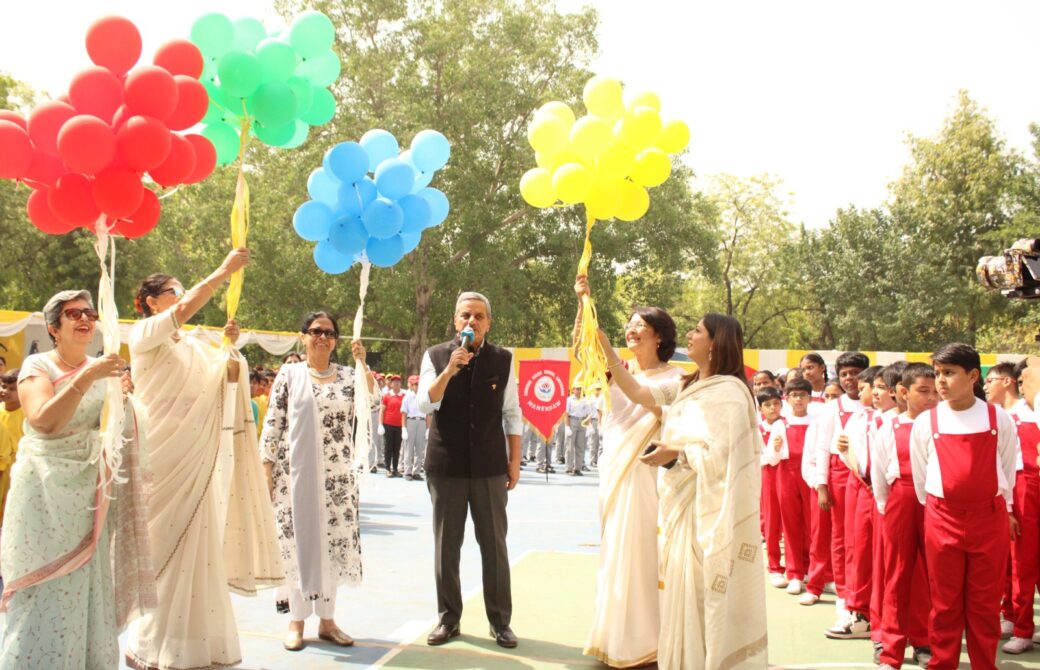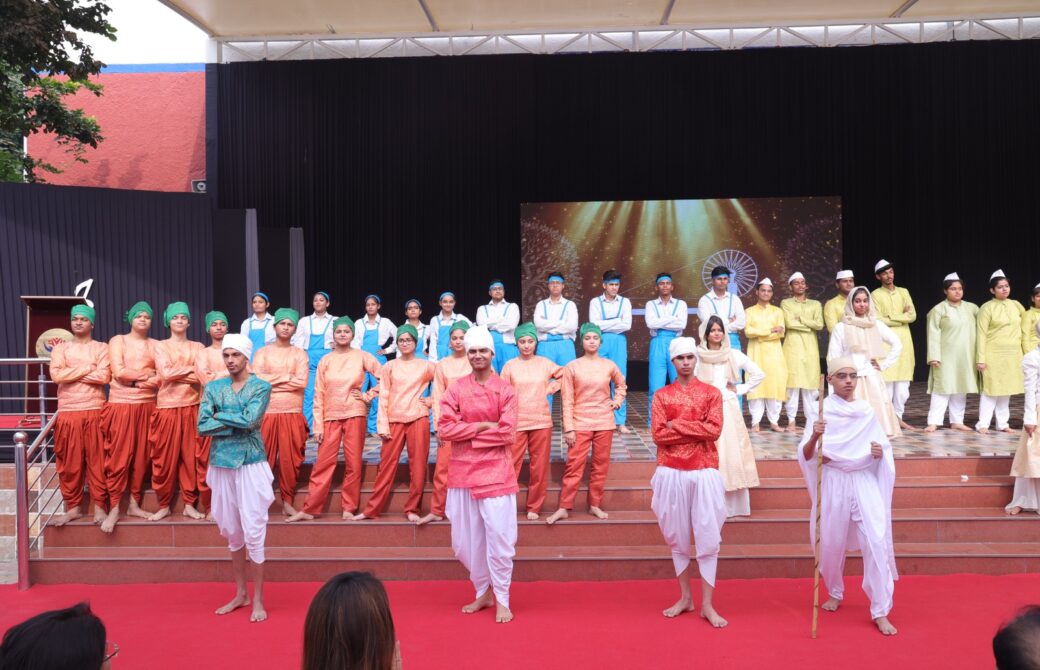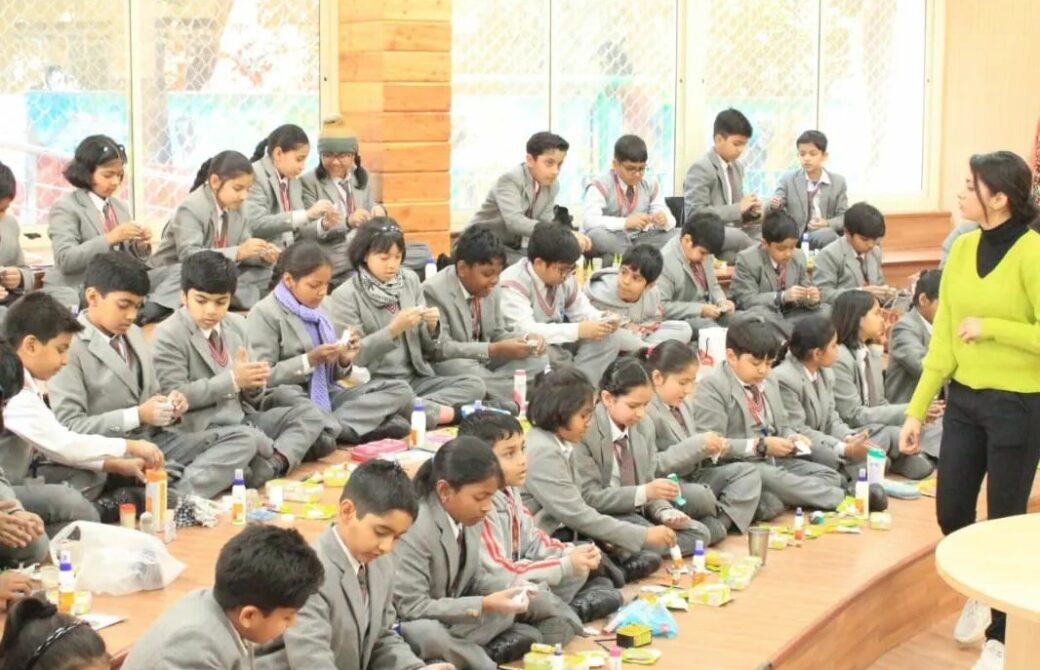Introduction:
In today’s rapidly evolving world, education is no longer confined to textbooks and exam papers. The need for a well-rounded educational experience is more significant than ever before. At Summer Fields School, the Top CBSE Schools in Gurgaon where a balanced approach that blends academics with co-curricular activities has become a cornerstone of modern education. This approach not only ensures academic excellence but also contributes to the overall development of a student, equipping them with essential life skills and fostering personal growth.
A comprehensive education, which combines rigorous academic training with extracurricular activities, cultivates creativity, problem-solving, time management, and teamwork. These life skills and competencies are necessary for success in the real world, and the earlier they are developed, the better. In this article, we will explore the importance of maintaining a balance between academics and activities and why it is crucial for the growth of students.
About Us:
At Summer Fields School, we understand the importance of balance in a student’s life. Our educational philosophy integrates academic learning with engaging extracurricular activities to ensure that students are well-prepared for the future. We offer a wide variety of activities, including sports, music, art, and debate, which help students build teamwork, resilience, and leadership skills. This balanced approach not only enhances academic achievement but also fosters creativity, emotional growth, and a strong sense of community. By encouraging students to explore their passions outside the classroom, we ensure that they develop into well-rounded individuals who excel in every aspect of their lives.
The Importance of Academic Rigor
Academics form the foundation of a student’s education. A strong academic background is essential for success in higher education and later in professional life. In subjects such as mathematics, science, literature, and history, students acquire fundamental knowledge that helps them understand the world around them. Moreover, academic learning develops critical thinking, analytical abilities, and intellectual curiosity, all of which are essential for future careers.
While academics are important, they shouldn’t be the sole focus of a child’s educational journey. Focusing exclusively on academic achievement can lead to burnout and stress, leaving little room for the development of other essential life skills such as creativity, communication, and collaboration. The key to success lies in striking a balance between academic pursuits and extracurricular activities.
The Role of Co-Curricular Activities in Holistic Development
Co-curricular activities are integral to a student’s overall development. These activities, which include sports, arts, music, drama, dance, clubs, and other passion-driven pursuits, offer students opportunities to explore and develop talents that might not be fully realized in the classroom. Co-curricular activities go beyond merely providing entertainment; they contribute significantly to personal development, academic achievement, and emotional well-being.
Some of the key benefits of engaging in co-curricular activities include:
- Development of Life Skills:
Co-curricular activities help students develop valuable life skills, such as time management, leadership, teamwork, and decision-making. These skills are not only useful in school but are also essential in the workplace and everyday life. For example, sports teams teach students how to collaborate, communicate effectively, and handle wins and losses gracefully. Similarly, drama and music foster creativity, expression, and confidence. - Physical Health and Well-Being:
Physical activities, whether in the form of sports or outdoor games, promote physical fitness and help students develop a lifelong habit of staying active. Physical health plays a direct role in mental clarity and focus, which are crucial for academic success. Studies have shown that regular physical activity enhances brain function, improves concentration, and reduces stress, ultimately leading to better academic performance. - Emotional and Social Growth:
Engaging in extracurricular activities also contributes to emotional and social development. Students learn how to handle pressure, deal with failures, and manage their emotions. Furthermore, these activities provide students with a platform to build social connections, form lasting friendships, and work with peers from diverse backgrounds. This helps students develop empathy, social intelligence, and interpersonal skills. - Fostering Creativity:
Creativity is an essential skill that drives innovation and problem-solving. Whether it’s through arts, music, or drama, extracurricular activities nurture a child’s creativity. By participating in these activities, students learn to think outside the box, experiment with new ideas, and express themselves in different ways. This creative thinking can enhance their academic work and open up new avenues for career exploration. - Confidence and Self-Esteem:
Participating in extracurricular activities, especially when students are recognized for their efforts, boosts their confidence and self-esteem. Whether it’s winning a sports competition or performing in a school play, the sense of accomplishment helps students develop a positive self-image. This confidence carries over into their academic endeavors, where they approach challenges with a can-do attitude.
The Connection Between Academics and Co-Curricular Activities
While it may seem that academics and co-curricular activities are separate entities, they are deeply intertwined. Academic skills such as problem-solving, critical thinking, and effective communication are honed in extracurricular activities. For example, drama students develop public speaking skills that enhance their ability to present academic projects confidently. Similarly, students involved in sports learn discipline, perseverance, and focus, all of which contribute to improved academic performance.
Research has also shown that students who engage in extracurricular activities tend to perform better academically. The reason behind this is simple: when students manage their time between studies and activities, they develop a sense of discipline and responsibility. This time management improves their focus and organizational skills, which are crucial for academic success.
Additionally, participating in activities outside the classroom helps students take their learning beyond theory. For instance, a student participating in a science club may develop a deeper interest in the subject, leading to better performance in science-related coursework. Co-curricular activities provide practical applications of academic concepts, making learning more engaging and relevant to students.
Building a Strong School Culture Through Balance
A balanced approach between academics and activities creates a positive school culture where students are encouraged to excel in both fields. When schools emphasize the importance of both academics and co-curriculars, students learn to appreciate the value of a well-rounded education. This creates a sense of camaraderie among students, fosters school spirit, and enhances the overall learning environment.
Moreover, a school that offers a balanced approach to education prepares students for future success in a variety of careers. In today’s competitive world, employers value individuals who possess not only technical expertise but also soft skills such as teamwork, leadership, creativity, and communication. A balanced education helps students build these qualities, making them more attractive to future employers and better prepared for life in the workplace.
The Role of Parents and Teachers in Promoting Balance
The responsibility for maintaining a balance between academics and activities lies not only with the students but also with their parents and teachers. Parents play an essential role in encouraging their children to participate in co-curricular activities while also prioritizing academic success. Teachers can support this balance by creating engaging, interactive, and practical learning experiences in the classroom, while also promoting the importance of extracurricular participation.
At the same time, it is important for schools to recognize the individual needs and interests of students. Not every student will excel in sports, arts, or drama, and that is perfectly fine. A balanced approach allows students to explore a variety of interests and find their passion, whether it’s in the arts, sports, social service, or other extracurricular domains.
Conclusion:
A balanced approach between academics and activities is essential for the overall growth and development of students. At Summer Fields School, the Best CBSE School in Gurgaon where it fosters intellectual, emotional, social, and physical well-being while equipping students with the skills needed to succeed in the real world. By participating in co-curricular activities, students not only enhance their academic performance but also build character, develop life skills, and cultivate a well-rounded personality.
As the educational landscape continues to evolve, it is important for schools, parents, and students to prioritize a balanced approach to learning. This will not only help students achieve academic excellence but also prepare them for a fulfilling and successful future. By embracing both academics and activities, schools can create an environment where students thrive and become well-rounded individuals ready to face the challenges of the future.







